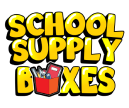Here are some tips and techniques to help teachers work through the grant writing process.
Grant Writing For Teachers: First, Know the Grant’s Requirements
The first step in grant writing for teachers is to familiarize yourself with the grant’s requirements and objectives. Before starting the proposal, carefully review the grant guidelines to make sure your project lines up with the funder’s goals.
This involves knowing the specific criteria for eligibility, the type of funding offered, and any required documentation or reporting. Customizing your proposal to meet these requirements is imperative for increasing your chances of success.
Clearly Articulate the Need
When putting your proposal together, clearly express the need for the grant. Explain how the funding will deal with specific challenges or gaps in your classroom or educational program.
For example, if you are in need of funds to buy school supplies in bulk, describe how these supplies will benefit your students and improve their learning experience. Provide concrete examples and data to support your case, demonstrating the clear impact the grant will have on your students’ education.
Structure Your Proposal Effectively
A well-structured grant proposal should include some basic but important components. Start with a compelling introduction that captures the funder’s attention and outlines the purpose of your project.
Follow this with a detailed description of your project, including its goals, objectives, and the strategies you will use to achieve them. Be specific about how the grant funds will be used and the outcomes you expect to achieve by focusing on the story of a specific student.
When writing a grant for education, focus on presenting a clear and logical plan. Include a timeline that outlines the main milestones and activities of your project. This helps funders get a better idea of how you will manage the grant and measure its success.
Also, provide a budget that details the costs associated with your project, making sure that it is in keeping with the funding limits and guidelines set by the grant provider.
Highlight Your Experience and Successes
It is also a good idea to highlight any previous successes or relevant experience in your proposal. Showing past achievements or demonstrating how you have effectively used grant funds in the past can build credibility and strengthen your application.
If applicable, include testimonials or endorsements from colleagues, administrators, or community members who can vouch for the impact of your work.
Proofread and Revise
Last, proofreading and revising your proposal is non-negotiable. Errors or inconsistencies can take away from the professionalism of your application and affect your chances of receiving funding.
Review your proposal several times and think about getting some feedback from colleagues or grant writing experts. Their insights can help you refine your proposal and boost its effectiveness.
Give Your Classroom a Boost with the Best Possible Grant Writing
Mastering grant writing for teachers can open doors to vital funding for classroom supplies and educational projects. School Supply Boxes is here to help you make the most of your grant funds with focused solutions for your specific needs.
Contact us at 724-801-5413 or use our online form to explore how we can support your classroom initiatives.


